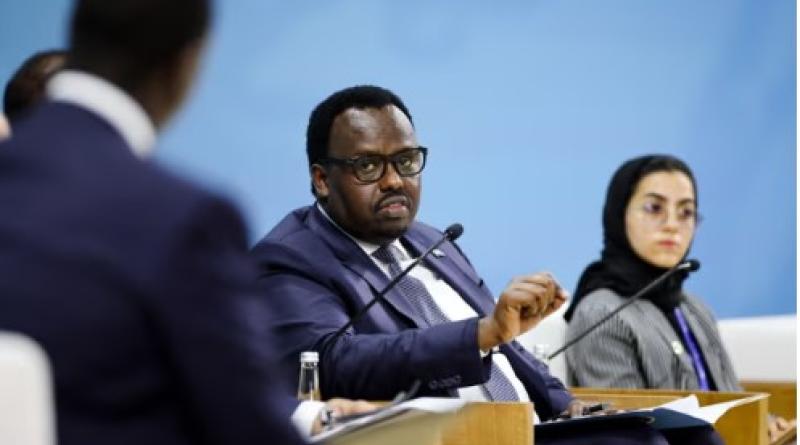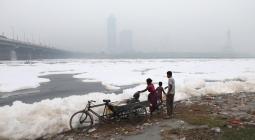Climate funding must be faster and easier, says deputy PM of flood-hit Somalia

Funding to support vulnerable countries to repair the irreversible damage caused by the climate crisis needs to be fast tracked and easy to access, Somalia’s deputy prime minister has said.
Salah Jama said a deal on a loss and damage fund made on the first day of Cop28 last week was “welcome news for frontline states like Somalia” but, he said: “Implementation needs to be fast tracked. Bureaucratic bottlenecks in accessing the financing have to be fixed.”
Speaking from Dubai, Jama, who is attending the climate summit, added that money had to be given as grants, rather than loans, as much of it has been until now, because Somalia cannot afford to take on more debt.
Countries such as Somalia, which recently suffered historic floods, have found it difficult to access existing climate funding, he said, which had been geared towards wealthy countries and was not accessible to states recovering from conflict or with fragile political systems.
“Our goal was to bring to the table the voices of our communities that have been devastated by climate change shocks, from droughts to floods,” he told the Guardian. “We’re hoping the loss and damage funds and other arrangements will help us ameliorate them.”
The decision to set up a loss and damage fund was agreed at Cop27 in Egypt in 2022 after years of obstruction by richer countries, which are mostly responsible for emissions. Details of how the fund would operate were not decided.
In the deal struck on Thursday, it was agreed the fund would be hosted by the World Bank with an initial pot of $429m (£340m). The estimated loss and damage caused by the climate crisis is estimated in some studies to be $400bn annually.
“African countries have contributed to less than 3% of global greenhouse gas emissions … yet when it comes to the impact of climate change, we are forced to live with the dire consequences, in which millions of people lose their livelihoods. As we speak, a third of Somalia is engulfed by floods and people’s livelihoods and their ways of life are being highly disrupted,” said Jama.
“Justice has to be the expedition of support [to those countries].”
As well as funds, Jama said Somalia needed technical support to help it build infrastructure for water and agriculture.
“Countries like Somalia must be given a very special consideration in terms of dealing with this, because the impact of climate change is very detrimental to our communities,” he said.
Jama said more than 100 people had died and tens of thousands of livestock had been lost in the recent flooding, which followed a prolonged drought.
“It is havoc – unbearable circumstances. That is where we need massive intervention and we come here to advocate for our nation. And there are other countries in similar situations to ours.”





